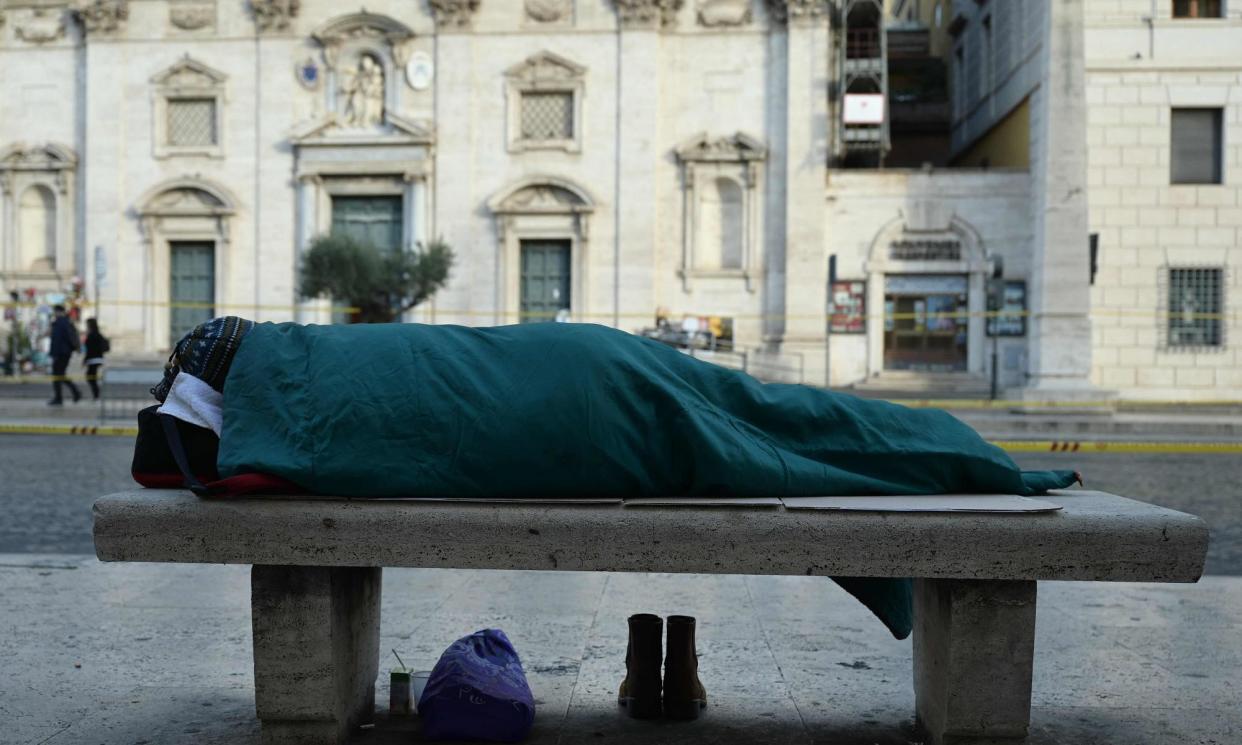Poverty is bigger issue for EU voters than migration, survey shows

Irregular migration is not the top priority for European voters despite the prominence of the issue in the media and political campaigning by rightwing parties over the last year, a survey commissioned by the European parliament shows.
The Eurobarometer poll, which tracks public opinions every quarter, puts poverty and the cost of living crisis and social exclusion as the number one issue for voters who go to the polls in early June to elect a new European parliament.
Health, jobs, defence and security all rank ahead of migration as does the climate crisis, which is a high priority for younger voters.
For voters in Italy, where irregular migration across the Mediterranean from Tunisia surged last year, along with those in Hungary, Portugal, Romania and Slovakia, the top priority is jobs and support for the economy.
Immigration and Ukraine were recorded as the joint two top issues for voters in the last survey published in December.
Sweden is the only country where voters want to see politicians put climate change at the top of their campaign.
While the survey shows a rise in numbers of people who say they will vote in June’s European elections, general scepticism in France is a repeated feature of these quarterly surveys.
The spring 2024 data shows 28% of those surveyed in France have a “negative image” of the European parliament, the second highest negative ranking after the Czech Republic, which is at 29%.
The Czech Republic is also exceptionally the only country where a majority say they would like the European parliament to play less of a role in politics, with 52% saying they think it should be “less important”.
Portugal, followed by Ireland and Sweden, are the three countries that have the most positive image of the EU, with 69% and 67% respectively agreeing “the EU conjures up” a positive rather than negative or neutral image.
At the other end of the spectrum are the Czech Republic, Austria and France.
Those with the most positive view of the parliament itself are the Cypriots, followed by Estonia, Greece, Lithuania and Belgium.
France is the only country where a majority (52%) say they are either “very pessimistic” or “fairly pessimistic” about the future of the EU.
Recent polls show Marine Le Pen’s National Rally, which wants to drastically reduce the EU’s decision-making powers, is broadening and solidifying its support, according to Le Monde.
In Hungary, where the nationalist prime minister, Viktor Orbán, recently vowed to “occupy” Brussels, support for the EU remains strong, with 56% saying they would like the European parliament playing a bigger role in national affairs.
Asked about what the next European parliament should prioritise, the largest support was for peace and democracy, followed by the protection of human rights, freedom of speech and thought and the rule of law.
The most consistently negative opinions in Europe are reserved for non-EU powers.
Almost 60% have a negative view of the US, something researchers say may be down to the prospect of Donald Trump returning to the White House.
Eighty-three per cent have a negative view of Russia but the percentage holding a positive view has risen from 10% to 12%.

 Yahoo News
Yahoo News 
